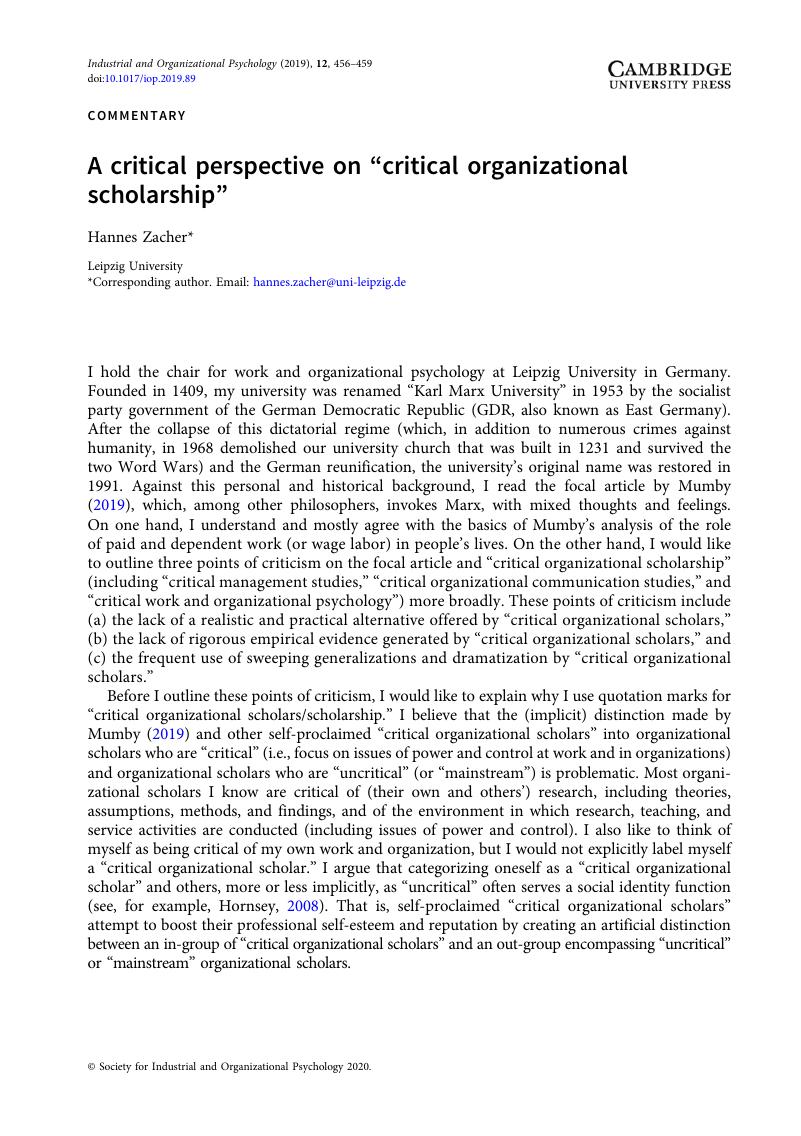Crossref Citations
This article has been cited by the following publications. This list is generated based on data provided by Crossref.
Weber, Wolfgang G.
Höge, Thomas
and
Hornung, Severin
2020.
Past, Present, and Future of Critical Perspectives in Work and Organizational Psychology – A Commentary on Bal (2020).
Zeitschrift für Arbeits- und Organisationspsychologie A&O,
Vol. 64,
Issue. 3,
p.
207.
Zacher, Hannes
and
Rudolph, Cort W.
2020.
Beware of “Populist Science”! – A Commentary on Bal (2020).
Zeitschrift für Arbeits- und Organisationspsychologie A&O,
Vol. 64,
Issue. 3,
p.
202.
Islam, Gazi
and
Sanderson, Zoe
2022.
Critical positions: Situating critical perspectives in work and organizational psychology.
Organizational Psychology Review,
Vol. 12,
Issue. 1,
p.
3.
Zacher, Hannes
and
Rudolph, Cort W.
2023.
Effects of person–occupation political orientation misfit on occupational identification: An experimental study.
Applied Psychology,
Vol. 72,
Issue. 3,
p.
1248.





